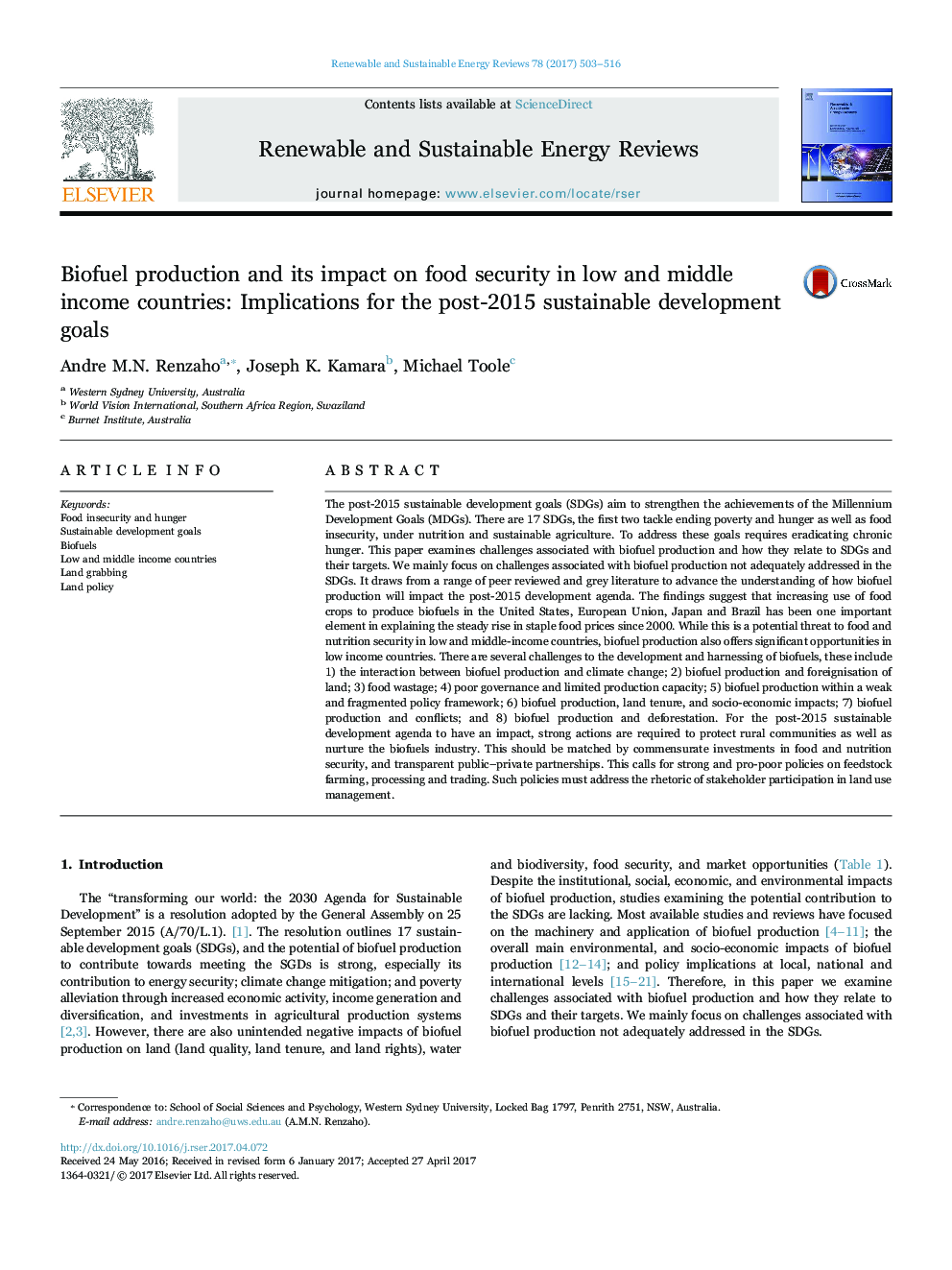| کد مقاله | کد نشریه | سال انتشار | مقاله انگلیسی | نسخه تمام متن |
|---|---|---|---|---|
| 5482482 | 1522308 | 2017 | 14 صفحه PDF | دانلود رایگان |
عنوان انگلیسی مقاله ISI
Biofuel production and its impact on food security in low and middle income countries: Implications for the post-2015 sustainable development goals
ترجمه فارسی عنوان
تولید سوخت های زیستی و تاثیر آن بر امنیت غذایی در کشورهای کم درآمد و متوسط: پیامدهای اهداف توسعه پایدار پس از 2015
دانلود مقاله + سفارش ترجمه
دانلود مقاله ISI انگلیسی
رایگان برای ایرانیان
کلمات کلیدی
ناامنی غذایی و گرسنگی، اهداف توسعه پایدار، سوخت های زیستی، کشورهای کم درآمد و متوسط، گرفتن زمین، سیاست زمین
موضوعات مرتبط
مهندسی و علوم پایه
مهندسی انرژی
انرژی های تجدید پذیر، توسعه پایدار و محیط زیست
چکیده انگلیسی
The post-2015 sustainable development goals (SDGs) aim to strengthen the achievements of the Millennium Development Goals (MDGs). There are 17 SDGs, the first two tackle ending poverty and hunger as well as food insecurity, under nutrition and sustainable agriculture. To address these goals requires eradicating chronic hunger. This paper examines challenges associated with biofuel production and how they relate to SDGs and their targets. We mainly focus on challenges associated with biofuel production not adequately addressed in the SDGs. It draws from a range of peer reviewed and grey literature to advance the understanding of how biofuel production will impact the post-2015 development agenda. The findings suggest that increasing use of food crops to produce biofuels in the United States, European Union, Japan and Brazil has been one important element in explaining the steady rise in staple food prices since 2000. While this is a potential threat to food and nutrition security in low and middle-income countries, biofuel production also offers significant opportunities in low income countries. There are several challenges to the development and harnessing of biofuels, these include 1) the interaction between biofuel production and climate change; 2) biofuel production and foreignisation of land; 3) food wastage; 4) poor governance and limited production capacity; 5) biofuel production within a weak and fragmented policy framework; 6) biofuel production, land tenure, and socio-economic impacts; 7) biofuel production and conflicts; and 8) biofuel production and deforestation. For the post-2015 sustainable development agenda to have an impact, strong actions are required to protect rural communities as well as nurture the biofuels industry. This should be matched by commensurate investments in food and nutrition security, and transparent public-private partnerships. This calls for strong and pro-poor policies on feedstock farming, processing and trading. Such policies must address the rhetoric of stakeholder participation in land use management.
ناشر
Database: Elsevier - ScienceDirect (ساینس دایرکت)
Journal: Renewable and Sustainable Energy Reviews - Volume 78, October 2017, Pages 503-516
Journal: Renewable and Sustainable Energy Reviews - Volume 78, October 2017, Pages 503-516
نویسندگان
Andre M.N. Renzaho, Joseph K. Kamara, Michael Toole,
